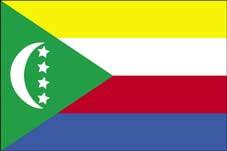Malawi releases MLND tolerant maize hybrids and high yielding multi-disease resistant hybrid maize varieties

The Center for Coordination of Agricultural Research and Development for Southern Africa (CCARDESA), through the Agricultural Productivity Program for Southern Africa (APPSA), has facilitated the release of two Maize Lethal Necrosis Disease (MLND) tolerant hybrids and three high yielding multi-disease resistant hybrids with traits preferred by smallholder farmers. These hybrids which were released in Malawi, have a greater potential of having the spill-over effects to the entire SADC region.
According to the recently released 2021 SADC Synthesis Report on the State of Food and Nutrition Security and Vulnerability, maize is the single most important cereal crop in Southern Africa, accounting for almost 70% of total cereal production in the region. The maize crop is produced on medium to high potential agricultural land primarily for human consumption, with only about 5% for animal consumption.
Biotic constraints have a significant effect on crop production and productivity, hence the need for breeding programs to release improved varieties that are resistant to those with relatively high economic importance. The APPSA sub-project titled “Breeding for Maize Leaf Necrosis Disease tolerance and development of maize varieties resistant to major diseases in Malawi, Mozambique and Zambia” has responded by successfully developing hybrids that are resistant to MLND, Grey leaf spot, Turcicum leaf blight and rust diseases. These hybrids are suitable for the major agro-ecological regions.
Prior to this, SADC did not have a recorded maize variety resistant to MLND, a viral disease caused by the double infection of maize plants with Maize chlorotic mottle virus (MCMV) and any of the cereal viruses in the Potyviridae group. MLND is a biotic constraint with a potential of wiping-out the entire maize crop field. While this disease has not yet been reported in the APPSA countries, its presence in Tanzania and DRC pauses a big threat to the maize industry in Malawi and other APPSA countries. MLND has also been reported in Kenya, DRC, Ethiopia, Rwanda, Sudan and Uganda.
Among other accomplishments under this project, APPSA has assisted Malawi to have additional germplasm that were accessed from CIMMYT and Mozambique. About 254 maize germplasms were mobilized, of which 202 were local maize accessions, 10 inbred lines resistant to MLND, 4 resistant to downy mildew and 33 resistant to multiple major diseases.
Malawi is the Regional Center of Leadership (RCoL) for maize and maize based production systems, established with support from CCARDESA under the APPSA initiative. Despite Malawi, Mozambique and Zambia being currently MLND free there is still a need to continue developing, releasing and commercializing more hybrids resistant to this notorious disease in readiness for incursion to prevent famine in the region.

























































